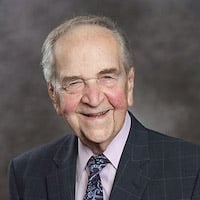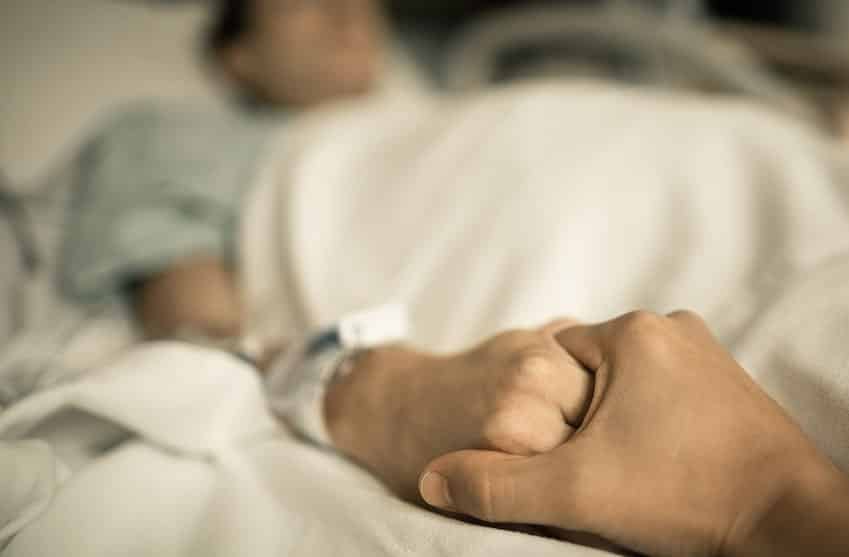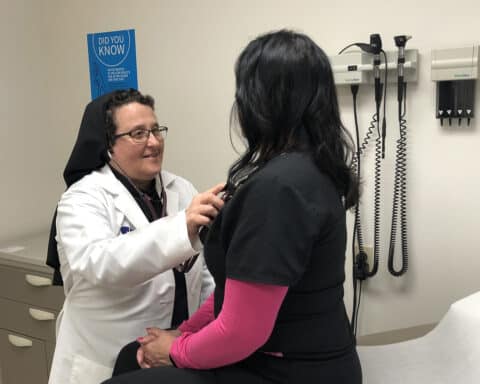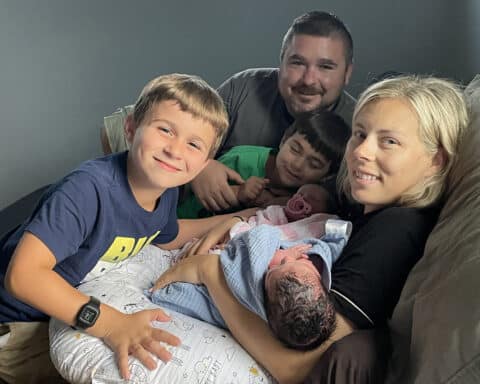I’m still waiting for the world to stop to mark the death of Dr. Michael J. Brescia. He was a founder of Calvary Hospital in New York and a trailblazer in palliative care. As best I can tell, Dr. Michael Brescia was St. Joseph living in New York. That’s something you’d think people should know about. A loving husband and father, he lived to help people, ultimately, have a happy death.

His story in medicine didn’t start out that way. He and a colleague invented a way to help patients in need of dialysis live better. He could have been a millionaire because of the innovation, but as he told the story, his Italian father dramatically told him no, and cautioned him about all the people who would die while they waited to make money off the lifesaving approach. Give it away! And so they did, publishing the protocols in the New England Journal of Medicine, saving countless lives.
I served on a pro-life commission with Brescia. And one thing he always made clear, in all our years of trying to combat efforts to bring doctor-assisted suicide to the Empire State, is that it is not necessary. Not if you have doctors like Brescia. From 1962 on, he served at what would become Calvary Hospital, a gold standard in palliative care — specifically for advanced adult cancer patients. It was fairly recently that I wondered if Brescia was ailing, because he was active until he couldn’t be, even in an emeritus position at Calvary.
In fact, the pastor of his home parish, where he and his wife raised their children, recalled at Brescia’s funeral Mass that during COVID, Brescia helped the priest with his own father’s care. Poignantly, the priest recalled that he thought his father wanting to go home was a geographic concern. He was actually communicating that he was ready to move toward the face of God.
The current director of Calvary is named Dr. (Christopher) Comfort, and that pretty much summarizes what Brescia tried to make clear to patients, family members of the sick, and the public. At Calvary, Brescia insisted that patients be treated as Christ himself, with his wounds and all. Every room in the hospital is a “vestibule of heaven,” he would remind himself as he walked from patient to patient. There is no reason for anyone to cry out in pain at Calvary, because their needs are met. As he put it in a video for the Calvary website: “We will handle the emergency issues. And we will handle the chronic issues. And we will pro-actively call you whenever I feel there is something you should hear. I will always be available for your family’s needs. I am honored and will always be honored to be your physician.” In explaining the work at Calvary, he insisted that every physical pain could be alleviated with enough care and attention. He would caution against anyone talking about redemptive suffering in his presence. He argued that was a choice the patient could make, to offer things up, but that the doctor’s responsibility was “succor, compassion, love, gentleness.” He wouldn’t go home at night if he knew a patient at Calvary was in pain. And, he would often say in the face of faux mercy, “We love you enough to never kill.” He wasn’t a theologian, he was a practitioner of the Gospel in the most vulnerable moments of life.
He was acutely aware, too, of the emotional suffering of people in the world. At Calvary, the mission was to make sure no one felt abandoned. No one would be left alone. People would be touched. When he talked about it, he would often touch the interviewer or person closest to him for emphasis. He would do the same thing that I see the most authentic pro-life heroes do at the beginning of life: Love people back into life. The patient and the family.
At his funeral Mass, the homilist, who met Brescia as a boy in their parish church, said Brescia’s “compassion was contagious.” We need that contagion for the beginning, every stage, and certainly at the end of life. It burdened Brescia’s heart knowing that people could ever think that they are a burden, that circumstances would lead them to believe that they would be better off dead. People need love. Love them! That’s what St. Joseph did. That’s what Dr. Brescia did. That’s what we’re called to do, more and more and more every day. Until everyone knows he is loved.
May this beautiful man rest in peace and come to intercede for those who suffer alone.
Kathryn Jean Lopez is a senior fellow at the National Review Institute and editor-at-large of National Review.





